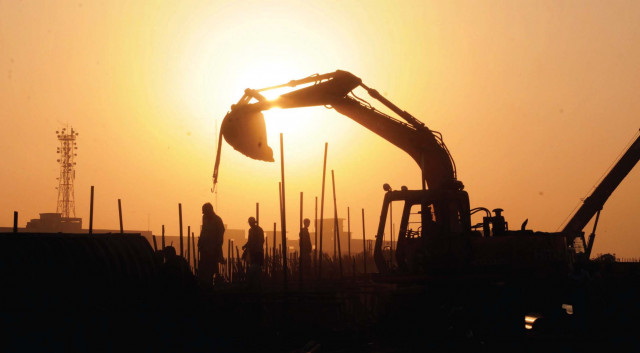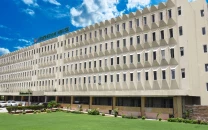Local bodies: The way forward for economic development
Effective LG system with financial autonomy can lead to prosperity.

History proves that whenever the local administration was put in place in the past, even in partially true spirit, it always led to some rural and urban development. PHOTO: EXPRESS/ FILE
It is indeed a good move in a country where the autocratic form of government seems an integral part of the history. Unfortunately, local administration has a low share in economic development even during the rule of elected federal and provincial governments.
The devolution of power is vital for removing a sense of deprivation and achieving economic development and prosperity at the local level. Formation of an effective local administrative structure aimed at decentralising administrative and financial authority, good governance, effective delivery of services and transparent decision-making through institutionalised participation of people at the grass roots level is the only way forward for a poverty-stricken country like Pakistan.
Indeed, the seventh National Finance Commission Award in 2009 was a landmark achievement when all provinces reached consensus after a long time over distribution of the country’s financial resources among themselves as well as with the federation.
Although the Centre has devolved powers to provinces after the 18th Constitutional Amendment, it will not produce desired results until the formation of local bodies with financial autonomy in its entirety. The NFC Award is just an arrangement for resource-sharing between the Centre and the provinces, but the third tier of the government – local bodies – does not come within its purview, which is actually concerned with devolution along with financial autonomy.
This is considered to be a core area for the local administrative setup all over the world, particularly in developed states. In contrast, we have a system where elected legislators for federal and provincial assemblies are responsible for infrastructure development at the local level, which is the prime cause of corruption and disparity in development across the country.
The allocation of resources from the Public Sector Development Programme (PSDP) to the legislators is a “manufacturing fault” of the democratic system in the country, which could be tackled through the establishment of an effective and accountable local bodies system.
Absence of effective local governments also contributes to many structural weaknesses in revenue collection. According to a study of local governments in the Asia-Pacific region, revenues at the local level constitute a mere 5% of the total revenues generated by different tiers of the government in a country. The central government bags close to 89% and the remaining is collected by the provinces or states.
Effective local governments will be able to show a better fiscal effort in terms of tax and non-tax revenue generation for the national exchequer. Apart from this, a small share of expenditure is needed at the local level, which is around 4% of the expenditures made by all forms of government.
History proves that whenever the local administration was put in place in the past, even in partially true spirit, it always led to some rural and urban development. Pakistan has just passed through its first phase of democratic transition. Now there is a pressing need to cultivate democratic seeds at the grassroots level through setting up an effective local government system with full financial and political autonomy aimed at achieving economic development and prosperity in the country.
The writer hosts business talk shows on FM 101 and Radio Pakistan and is pursuing an M Phil in Economics
Published in The Express Tribune, November 4th, 2013.
Like Business on Facebook, follow @TribuneBiz on Twitter to stay informed and join in the conversation.



















COMMENTS
Comments are moderated and generally will be posted if they are on-topic and not abusive.
For more information, please see our Comments FAQ